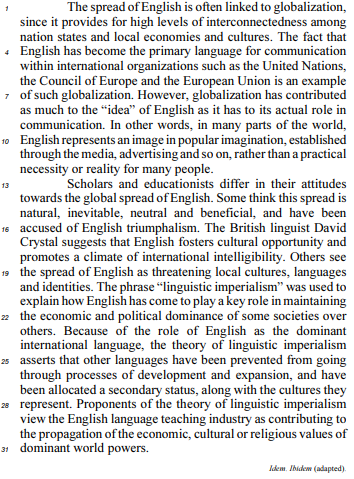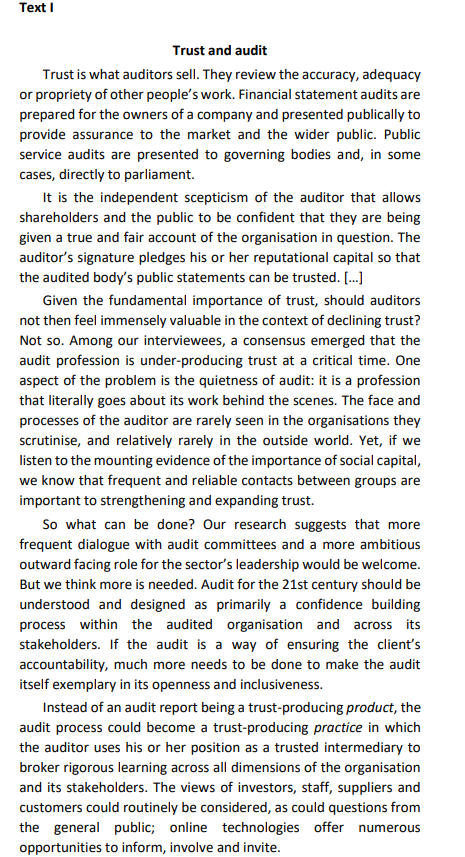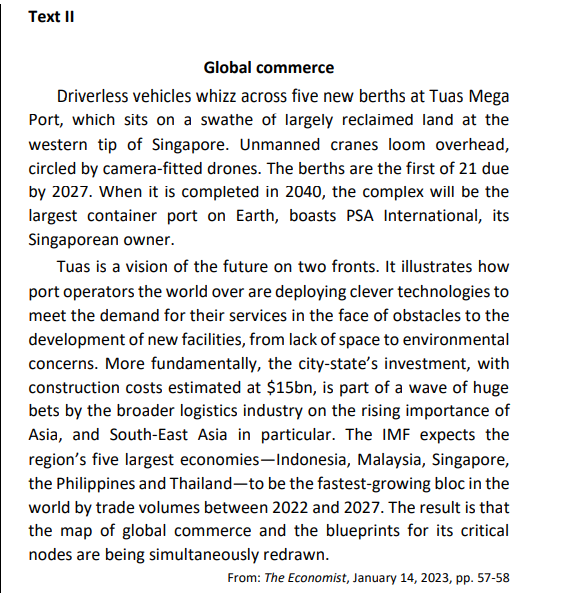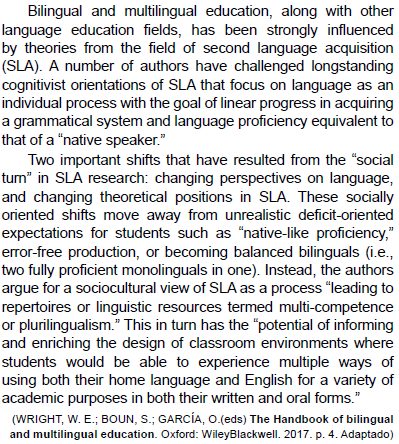“Unless” in “unless it can stake a stronger claim to supporting improvement” (7th paragraph) introduces a(n)
The use of the verb “loom” in “Unmanned cranes loom overhead” (1st paragraph) helps build an atmosphere that is rather
É o núcleo do objeto na frase do segundo parágrafo “These socially oriented shifts move away from unrealistic deficit-oriented expectations for students such as “native-like proficiency,” error-free production, or becoming balanced bilinguals”:
Consider the following: I. “Used to” expresses the idea of customary or habitual action in the past; II. “Be to” is used to indicate plans, obligation, necessity or arrangements; III. “Must” expresses unavoidable obligation or necessity; IV. “Will” and “be going to” can always be used interchangeably.
Which statement below is not correct?
Which one of the alternatives below is not correct?
Mark the option that correctly completes the following statement:
The correct place for the __________1 clause “published in the journal Psychology of Popular Media Culture" is immediately after the word __________2.
The suffix -ness is added to adjectives in order to form:

Concerning the previous text and its linguistic aspects, judge the following item.
The subject of the verbal form “is", in the fragment “is an example of such globalization" (R. 6 and 7), is “English" (R.4).
Complete the sentence below with the correct structures of the Third Conditional. Choose the CORRECT answer. (Third Conditional)
If I ________ you were in hospital, I _________ you.
All the words below can be used as adjectives or adverbs, except:
Mark the sentence in which the word “however" has the same word class, syntactic function and meaning of the one in the sentence “However, with the rise of e-books and digital devices, the researchers were surprised to find that reading had dropped so steeply." (lines 147-149)
A pronoun is a word that replaces a noun in a sentence. Pronouns are used so that the same nouns are not repeated over and over in a paragraph.
In the sentence “The guy I borrowed money from showed me a gun and told me to pay him immediately.", the underlined words are:

In the extract above, what does the word “its" (line 2) REFER to?
What type of Conditional is the sentence below? Choose the CORRECT answer.
“If Ken had taken his piano, he could have played for us."






